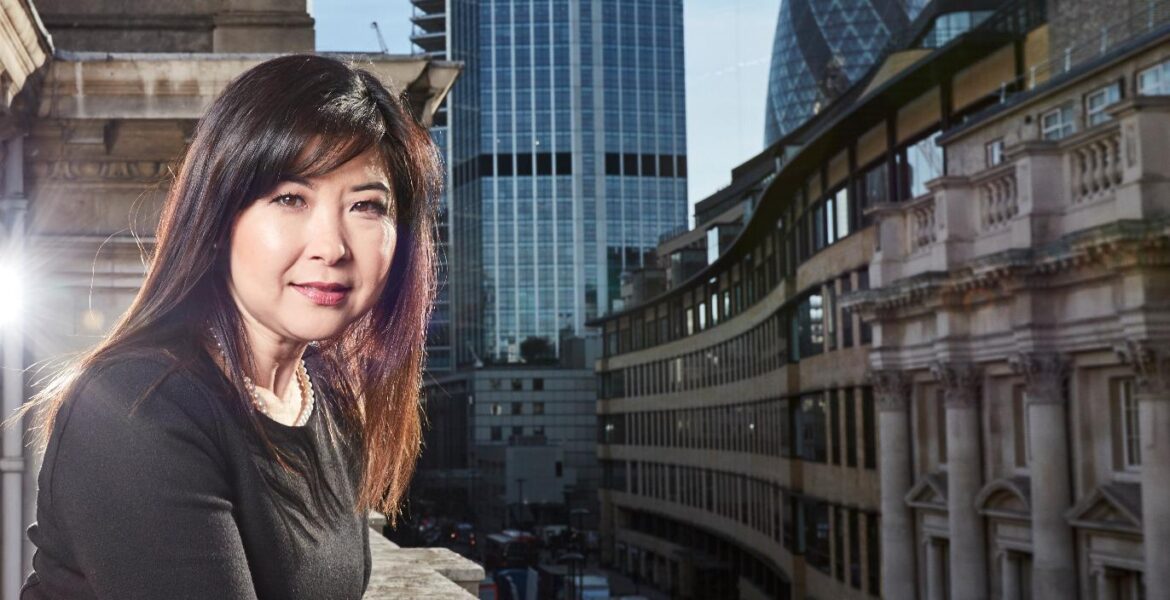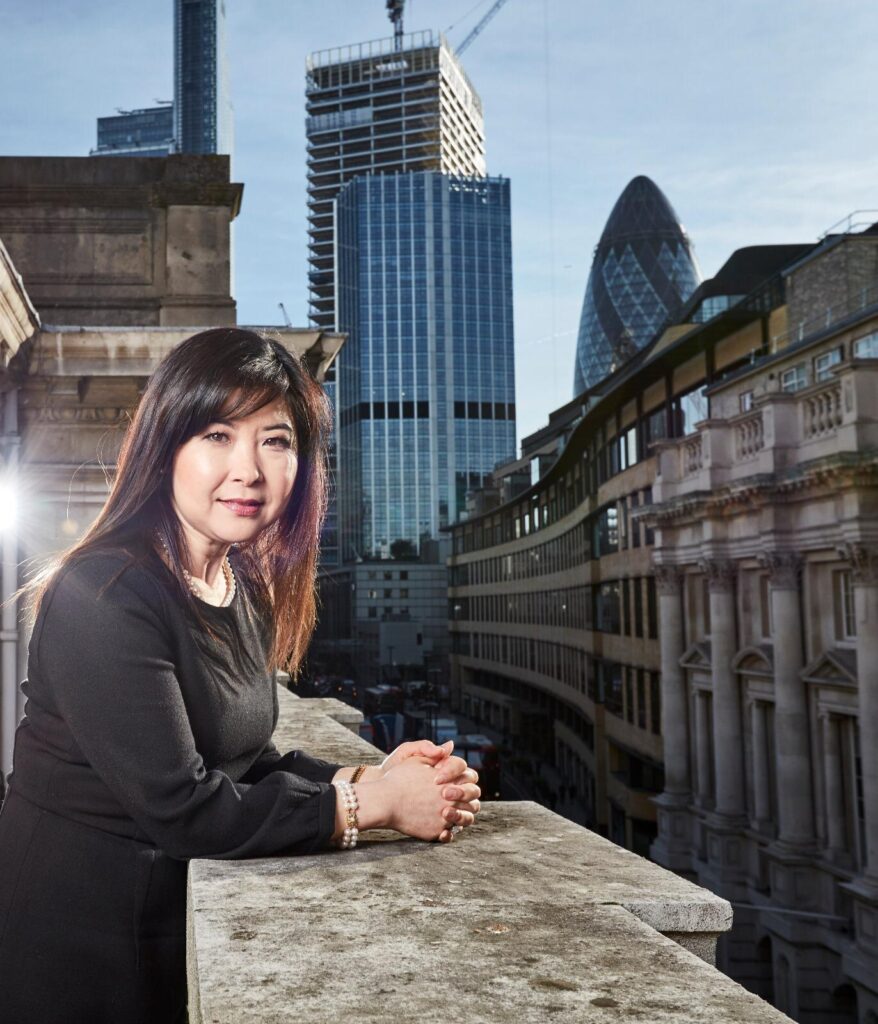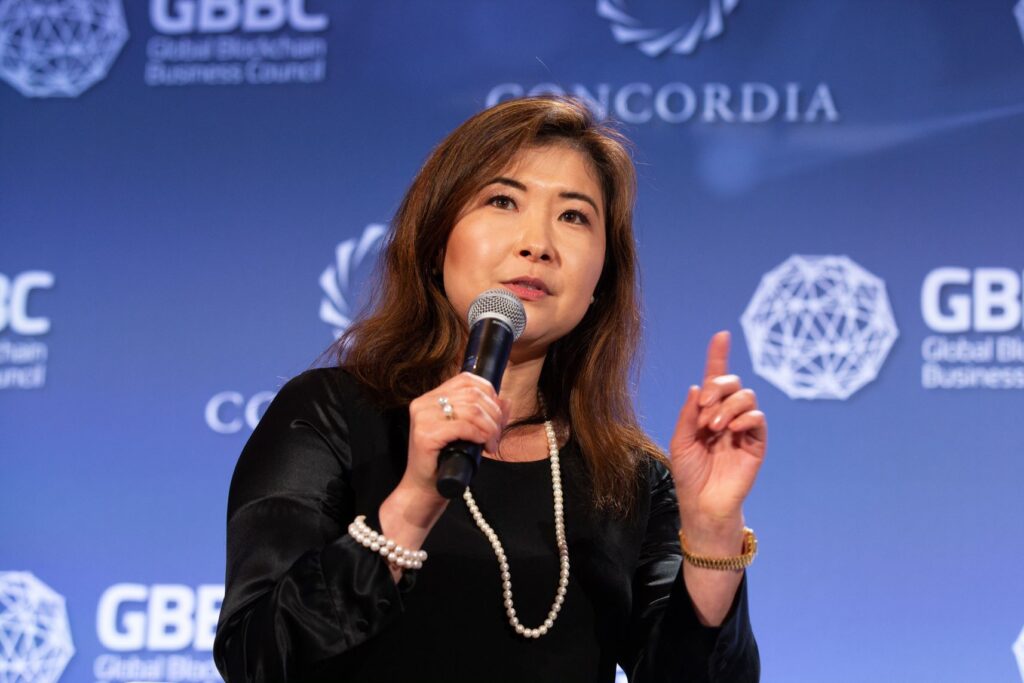Sandra Ro’s impressive background includes directorships on industry boards and companies including Global Digital Finance (GDF), BitGive Foundation, and SendFriend, as well as angel investing in several emerging tech start-ups across blockchain, robotics, and digital assets. Sandra is the CEOof the Global Blockchain Business Council (GBBC), a Swiss non-profit focusing on education, advocacy & partnership across over 50 countries.
FWM: You have co-founded several tech start-ups. What do you see in the future of tech?
Technology, when utilized for the benefit of society, can be key to positive social and economic change. What do I mean? For example, the super computer in our pockets, coupled with a camera and video features, can help anyone document and record injustices, racist incidents, and help farmers in some of the most remote parts of the world communicate with others.
Technology is ubiquitous and is transforming nearly every aspect of our lives from healthcare to education to entertainment and even, governments. Digitization of most industries and sectors is and will continue to, profoundly change our daily lives. What is critical? Who is building this tech, how is it being architected and designed? What happens when bias and exclusionary datasets are baked into platforms with artificial intelligence feeding off of that flawed information?
There are significant social, ethical, and cultural questions we must ask as a society and design the ‘rules of the digital road’ if we are going to use technology for the benefit of all. Otherwise, if we let technologists, venture capitalists, and market forces run without any checks and balances, society runs the risk of designing systems that are implicitly biased and exclusionary. We need more women in tech, more diverse groups including special needs, different socio-economic backgrounds, cultures to build the inclusive tech, everyone deserves.
At a conference at the Vatican in September 2019, I had the privilege of speaking several days with leaders of the Vatican, technologists, and other business leaders to discuss what is the Common Good and how do we, as leaders, mitigate the Digital Divide. Pope Francis and the Vatican have raised this critical topic as the world becomes increasingly digitized, how many more people will we leave behind? Or will we build systems and networks that will include more people and bring many up? It is truly up to us, the builders, leaders, and pioneers.
FWM: As the CEO of Global Blockchain Business Council (GBBC), how are you helping those most vulnerable and financially excluded to harness technology?
The GBBC is a Swiss non-profit foundation focused on education, advocacy, and partnership to build the next multi-trillion dollar emerging technologies industry in the making, which includes blockchain technology and cryptoassets. We fundamentally believe and advocate for global collaboration of stakeholder institutions, from academia, governments, NGOs to Fortune 500 to young start-ups to work together and democratize the digital opportunity set for many, not a few.
The GBBC works with large and small institutions to identify problems, drive solutions, and foster collaboration to scale services and opportunities, especially for those with little voice or power. Our membership includes groups like the United Nations’ World Food Programme and some of its start-ups innovating to help farmers in Peru, like Producers Direct UK. The GBBC works with governments around the world to support hackathons, roundtables, technology initiatives across many sectors including education technology, business processes, financial services / payments, healthcare, energy, supply chains, and many more.
We bring institutions together who may not generally interact, nor work together. We believe in a multi-stakeholder approach to solving some of the most challenging problems of today. Technology is one tool of many that need to be utilized to effect real sustainable change.
FWM: Where did your love for humanity begin? What is your advice for young people today?
I learned a valuable lesson when I volunteered in a remote part of Mexico during my teens, building roads and houses. The very last night of our time in the town, we had a special dinner. We had pollo (chicken) that night, which was memorable because it was the first time I had had meat in weeks (most days were mangos and tortilla). It was great. The next morning, as we were leaving, I asked where the animals were, the chickens that were usually found running around. One of my older peers looked at me oddly and said, ‘you ate them for dinner last night. didn’t you realize that?’ My ignorant teenage mind was blown. No, it did not cross my mind that a town and people that had so little, sacrificed their few chickens so we could have a feast. I was overcome with guilt, gratitude, and awe. I had to say thank you somehow, but I had so little with me…I ended up giving away all of my ‘American designer clothes’ to the local teenage girls and returned to a very puzzled mother discovering my empty suitcase once I returned home.
Over time, I learned that ‘being rich’ takes on a different meaning to different societies and people. Some of the most generous and ‘rich’ humans I have encountered have very little material wealth, and/or possessions and likewise, some of the millionaires and billionaires I have met in my time, are some of the most parsimonious, selfish, sad humans.
My advice to young people is to get to know lots of different types of people, form a good network of dependable, supportive people around you to help you form your own world view. Social media following is nice but I am referring to real relationships and encounters in person. It may harder now during the pandemic but there is no replacement for the human interaction, face to face, in person.
Also, learn from the uncomfortable, unfamiliar. Learn to imagine yourself in other people’s shoes and try to understand their point of view.
Finally, ignore those who put you down. If I ever listened to people who said I couldn’t do something, I would be nowhere. I have been told plenty: ‘you’re a girl, you can’t work on a trader floor, you can’t be a financial engineer, nor a trader, nor a computer scientist. And much worse…’ ignore it, don’t waste your precious energy on people telling you, you cannot do something.
FWM: From an introvert to an avid communicator, how have you evolved as a global speaker? Do you have any plans for virtual conferences in the near future?
Practice, training, and baby steps. I was so frightened of public performances, speaking, singing since childhood. But I had a mother and school system which encouraged me to play instruments, sing in choirs, play team sports and ‘be out there’. I think everyone should take acting classes as well. You learn valuable skills in presence, influence, and how to make human connections with a big audience. It’s was extremely anxiety-inducing in the early days of speaking, and there were definitely some bad moments of less than stellar talks, but as you improve and hone your skills, just like anything else, you get better at it and eventually, the anxiety/nervousness goes away.
Yes, we have started many virtual events/webinars. Our next big virtual conference is GBBC Blockchain Central during the UN General Assembly (Sept 17-18) where we will have many speakers from many different backgrounds speak on UN Sustainable Development Goals and how blockchain technology is being used to solve some of these great problems.
https://gbbcouncil.org/media/photos/ (webinar videos – lots of them)
FWM: Share your vision for 2020.
The pandemic has created massive paradigm shifts and permanent changes in certain sectors. I surmise, the pandemic, along with existing trends, is accelerating the digital economy evolution. What does that mean for the average person? It means you shop online more, your entertainment is online/digital, now your doctor even comes to you now via telemedicine. All of this accelerates into the next decade. That is good.
What is potentially bad? I go back to the digital divide. Those who do not have good access to the Internet, not educated, not able to adapt to a digital economy to make money. What happens to this segment of the population? We need to address these challenges now and create better opportunities as this shift accelerates.
Over the past few weeks and into 2020, I am writing a 4 part op-ed (see below) focusing on key areas of importance for our future (focus is on USA but much applies from a global perspective) 1) government, 2) digital identity, 3) global payments, and 4) global supply chains. See part I below.
Part I: Changemakers Needed Now – https://cointelegraph.com/news/united-states-in-distress-changemakers-needed-now
FMW: Do you have any additional thoughts?
Thank you for the opportunity to speak and convey my thoughts for a better, more equitable society. It is very much in our power to make positive change. We need to more women in positions of influence, decision-making, and resource allocations, we need to be more kind to each other, work together, and think as a collective, not just as an individual.



